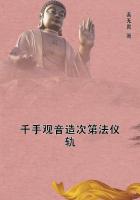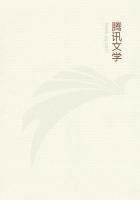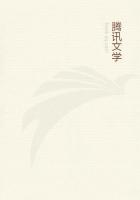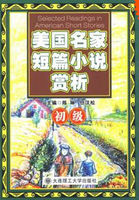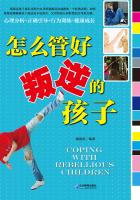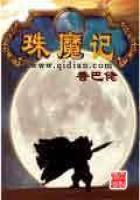Temple wished to put Halifax into the new Council, and leave out Shaftesbury. The King objected strongly to Halifax, to whom he had taken a great dislike, which is not accounted for, and which did not last long. Temple replied that Halifax was a man eminent both by his station and by his abilities, and would, if excluded, do everything against the new arrangement that could be done by eloquence, sarcasm, and intrigue. All who were consulted were of the same mind; and the King yielded, but not till Temple had almost gone on his knees. This point was no sooner settled than his Majesty declared that he would have Shaftesbury too. Temple again had recourse to entreaties and expostulations. Charles told him that the enmity of Shaftesbury would be at least as formidable as that of Halifax, and this was true; but Temple might have replied that by giving power to Halifax they gained a friend, and that by giving power to Shaftesbury they only strengthened an enemy. It was vain to argue and protest. The King only laughed and jested at Temple's anger; and Shaftesbury was not only sworn of the Council, but appointed Lord President.
Temple was so bitterly mortified by this step that he had at one time resolved to have nothing to do with the new Administration, and seriously thought of disqualifying himself from sitting in council by omitting to take the Sacrament. But the urgency of Lady Temple and Lady Giffard induced him to abandon that intention.
The Council was organised on the twenty-first of April, 1679; and, within a few hours, one of the fundamental principles on which it had been constructed was violated. A secret committee, or, in the modern phrase, a cabinet of nine members, was formed.
But as this committee included Shaftesbury and Monmouth, it contained within itself the elements of as much faction as would have sufficed to impede all business. Accordingly there soon arose a small interior cabinet, consisting of Essex, Sunderland, Halifax, and Temple. For a time perfect harmony and confidence subsisted between the four. But the meetings of the thirty were stormy. Sharp retorts passed between Shaftesbury and Halifax, who led the opposite parties, In the Council, Halifax generally had the advantage. But it soon became apparent that Shaftesbury still had at his back the majority of the House of Commons. The discontents which the change of Ministry had for a moment quieted broke forth again with redoubled violence; and the only effect which the late measures appeared to have produced was that the Lord President, with all the dignity and authority belonging to his high place, stood at the head of the Opposition. The impeachment of Lord Danby was eagerly prosecuted. The Commons were determined to exclude the Duke of York from the throne. All offers of compromise were rejected. It must not be forgotten, however, that, in the midst of the confusion, one inestimable law, the only benefit which England has derived from the troubles of that period, but a benefit which may well be set off against a great mass of evil, the Habeas Corpus Act, was pushed through the Houses and received the royal assent.
The King, finding the Parliament as troublesome as ever, determined to prorogue it; and he did so, without even mentioning his intention to the Council by whose advice he had pledged himself, only a month before, to conduct the Government. The counsellors were generally dissatisfied; and Shaftesbury swore, with great vehemence, that if he could find out who the secret advisers were, he would have their heads.
The Parliament rose; London was deserted; and Temple retired to his villa, whence, on council days, he went to Hampton Court. The post of Secretary was again and again pressed on him by his master and by his three colleagues of the inner Cabinet. Halifax, in particular, threatened laughingly to burn down the house at Sheen. But Temple was immovable. His short experience of English politics had disgusted him; and he felt himself so much oppressed by the responsibility under which he at present lay that he had no inclination to add to the load.
When the term fixed for the prorogation had nearly expired, it became necessary to consider what course should be taken. The King and his four confidential advisers thought that a new Parliament might possibly be more manageable, and could not possibly be more refractory, than that which they now had, and they therefore determined on a dissolution. But when the question was proposed at council, the majority, jealous, it should seem, of the small directing knot, and unwilling to bear the unpopularity of the measures of Government, while excluded from all power, joined Shaftesbury, and the members of the Cabinet were left alone in the minority. The King, however, had made up his mind, and ordered the Parliament to be instantly dissolved.
Temple's Council was now nothing more than an ordinary Privy Council, if indeed it were not something less; and, though Temple threw the blame of this on the King, on Lord Shaftesbury, on everybody but himself, it is evident that the failure of his plan is to be chiefly ascribed to its own inherent defects. His Council was too large to transact business which required expedition, secrecy, and cordial cooperation. A Cabinet was therefore formed within the Council. The Cabinet and the majority of the Council differed; and, as was to be expected, the Cabinet carried their point. Four votes outweighed six-and-twenty. This being the case, the meetings of the thirty were not only useless, but positively noxious.
At the ensuing election, Temple was chosen for the University of Cambridge. The only objection that was made to him by the members of that learned body was that, in his little work on Holland, he had expressed great approbation of the tolerant policy of the States; and this blemish, however serious, was overlooked, in consideration of his high reputation, and of the strong recommendations with which he was furnished by the Court.

